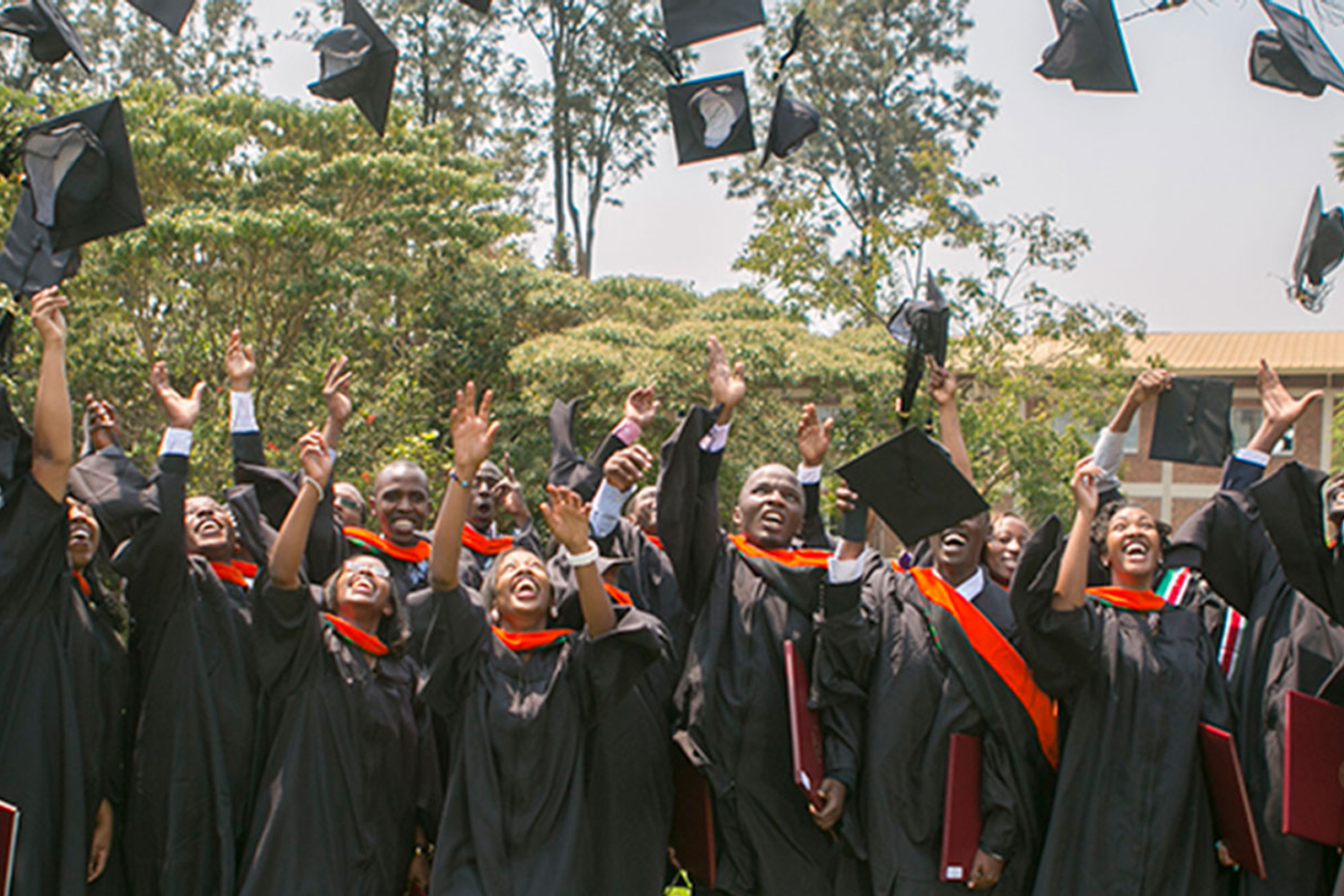
CMU-Rwanda advances ICT by graduating third class and forming new partnership
Amid the pomp and circumstance were plenty of smiles as Carnegie Mellon University in Rwanda celebrated the graduation of its third class on June 20, 2016. The ceremony, taking place at the Serena Hotel in Kigali, Rwanda, awarded 24 students with master’s degrees in information technology and electrical and computer engineering.
Expectations for the Class of 2016 are high—these engineers have achieved much during their two years at Carnegie Mellon. In addition to completing rigorous courses at a world-class university, the students worked alongside the faculty in Africa on projects addressing the region’s critical needs. For example, students developed tools to assess energy demand and dispatch in Rwanda and identified cybersecurity vulnerabilities in energy metering technology used on 35 million meters in 85 countries. By applying wireless communications to determine local irrigation needs, one student designed an irrigation and water-sharing system that optimizes water distributions among farms. A project focusing on human health resulted in a data analytics system that forecasts the incidence of malaria using point-of-sale information from pharmacies. These highly trained graduates are ready to enter the workforce, start companies, and take their places in Rwanda’s growing technology-centric culture.
At the graduation, the director of the program, Bruce Krogh, welcomed guests and thought leaders from Africa and abroad who later addressed the audience. Speakers included the Honorable Papias Musafiri, the Rwandan Minister of Education; Subra Suresh, president of Carnegie Mellon University; James H. Garrett Jr., dean of the College of Engineering; and Timothy Kaboya (MSIT ’16), the student speaker. The keynote speaker was Jendayi Frazer, a member of the Board of Directors of The MasterCard Foundation.
Frazer implored the graduates to acknowledge the important role they will play in developing Africa by defining and shifting its place in the world. She also highlighted the benefits of belonging to the Carnegie Mellon alumni network, reminding the graduates that they have a global community of more than 100,000 people that they can tap into throughout their careers.
The graduation validated the Class of 2016’s achievements and reaffirmed that Carnegie Mellon in Rwanda will continue its mission to graduate engineers and entrepreneurs. After the graduation, Carnegie Mellon announced a new partnership with The MasterCard Foundation, which awarded the university $10.8 million to establish a MasterCard Foundation Scholars Program. This program will enable 125 students from Sub-Saharan Africa with high leadership potential from underprivileged populations the support to attend Carnegie Mellon in Rwanda.
Another initiative that’s being led by the Rwandan government is Kigali Innovation City, which is being built on the outskirts of Kigali. This site will provide an enabling environment for business and become the focal point of ICT innovation in Africa. The future campus for Carnegie Mellon’s master’s programs is currently under construction in Kigali Innovation City.
Great opportunities lie ahead for the Class of 2016 and for the dedicated Carnegie Mellon students who will follow.
Including the Class of 2016, the East African program has 70 graduates to date, hailing from Rwanda, Kenya, Uganda, and the United States. The vast majority of these graduates are working in their home countries.